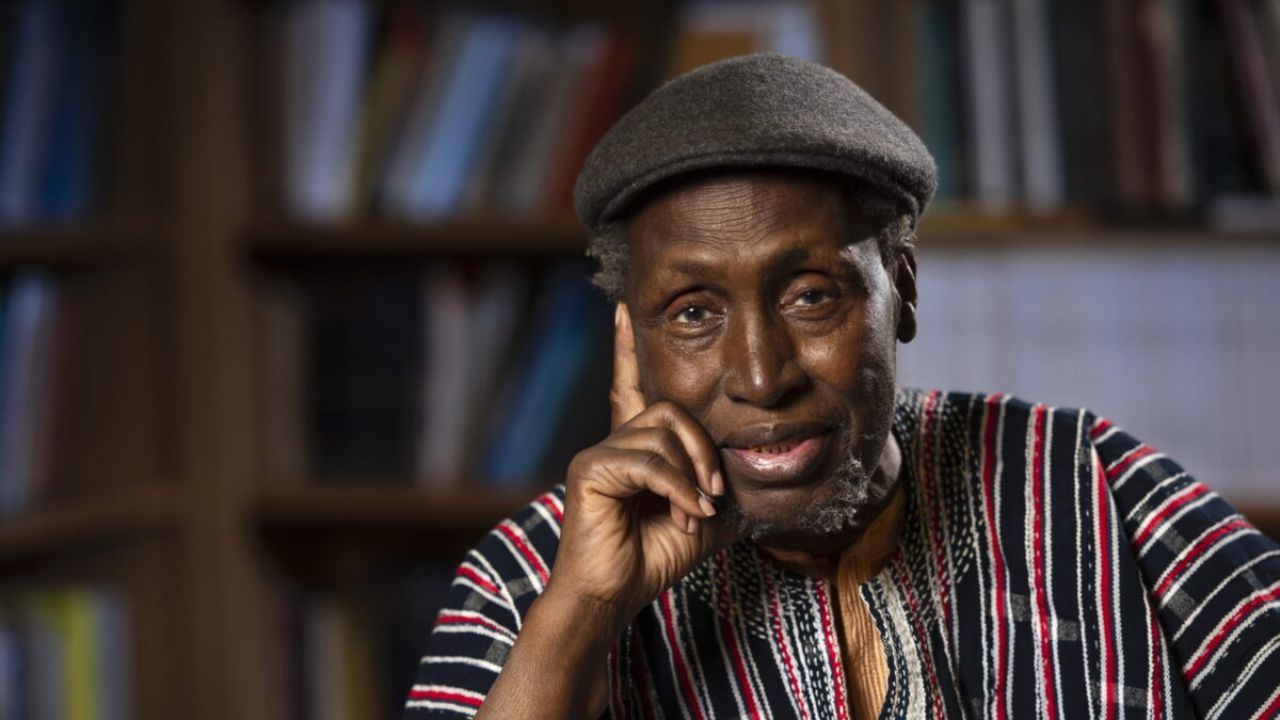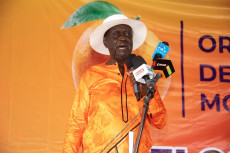- The remains of the veteran writer Ngũgĩ wa Thiong’o were cremated in the US on Thursday, June 5, 2025.
The first public event in remembrance and celebration of the legend veteran writer Ngũgĩ wa Thiong’o is set to take place in Atlanta, Georgia, at Akazi Gallery on June 7, from 3:00 to 5:00 p.m.
Thereafter, a gathering will be held at the University of Nairobi on a date to be determined, followed by a formal academic celebration at the University of California, Irvine, on November 10, 2025.
In addition, a private family ceremony will be held in Gītogothi, Limuru, the home place where Ngũgĩ was born.
The remains of the veteran writer Ngũgĩ wa Thiong’o were cremated in the US on Thursday, June 5, 2025.
Ngũgĩ wa Thiong’o passed on May 28, 2025, in Buford, Georgia, aged 87. He had battled health issues like kidney failure that subjected him to regular dialysis treatments towards his sunset days.
Read More
According to his son Mukoma wa Ngũgĩ, his father wished to be cremated. The family had announced that there would be no formal public burial as per the late literary giant’s final wishes.
Instead, the family has advocated for a series of commemorative events to be held in Kenya and the United States to celebrate the writer’s life and work journey.
“He wished instead to be remembered in spirit, through the ideals he stood for and the lives he touched,” this statement was signed by Ndūcũ wa Ngũgĩ, one of his sons, on June 1.
Ngũgĩ, a prominent figure in contemporary African literature and an influential political voice was born in colonial Kenya in 1938.
He started his writing journey in the English language before switching to his native Kikuyu to advocate for the vitality of African languages as instruments of liberation, especially during the colonial period.
Devil on the Cross is Ngũgĩ’s renowned novel that was famously penned on toilet paper during his imprisonment without trial in 1977. Therefore, he stood as a cornerstone of post-colonial African literature.
Ngũgĩ wa Thiong’o’s career spanned nearly six decades. His work recorded Kenya's transformation from colonial rule to democracy.
Although many people severally expected him to win the Nobel Prize for Literature, this was never realized. Nevertheless, the champion of literary emancipation and innovation will forever be remembered.
Ngũgĩ’s children expressed gratitude for the global outpouring of love and solidarity to their family and friends. One of them wrote, “We thank you for the poems, songs, tributes, and support,” they wrote. “Your words remind us of the reach of his message and the depth of his humanity.”
As tributes continue to flow in from across the world, this veteran, who was once jailed for his words, is now and will always be remembered not with a tombstone but with a tapestry of united voices for the causes he championed. The power of storytelling, language and liberation are core.
He chose not to be buried but to live on in word and spirit.












